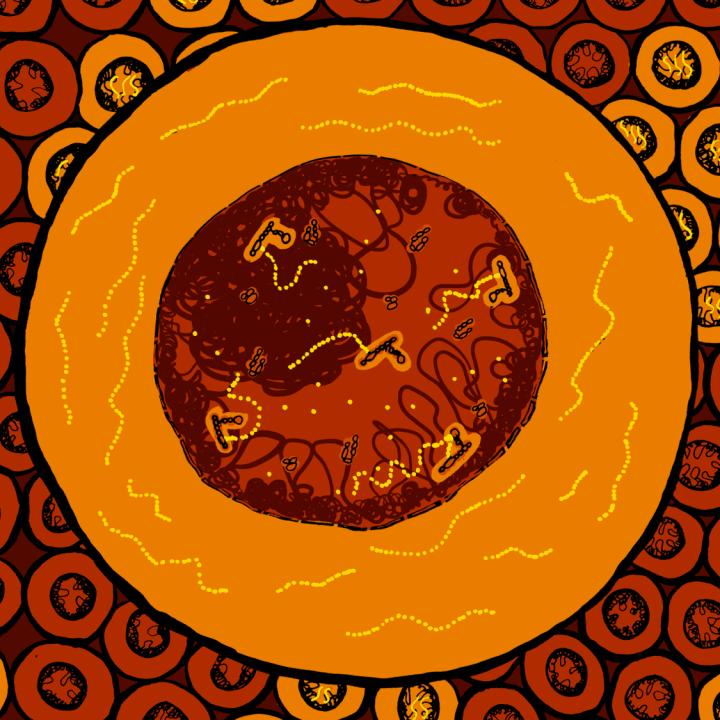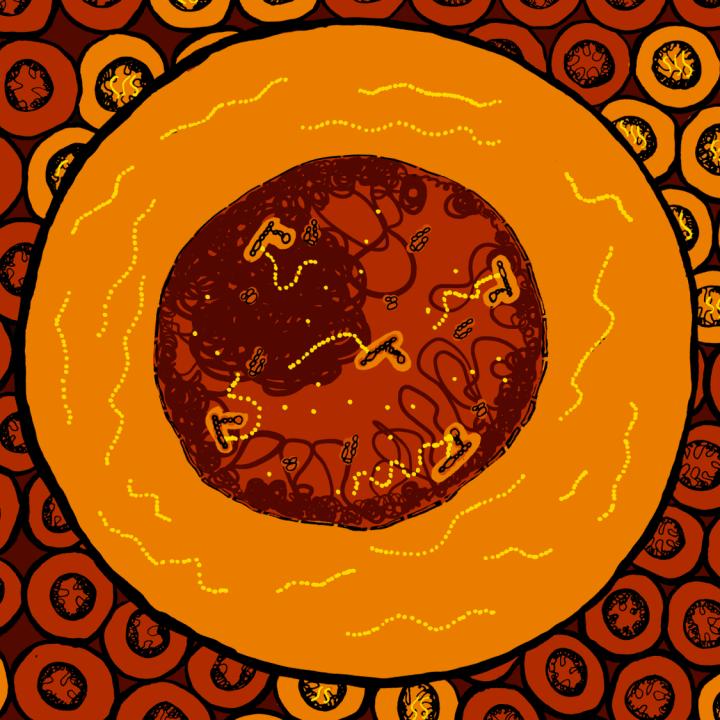
Credit: Claudia Stocker VividBiology
When cells divide, they need to rebuild their nucleus and organise their genome. New collaborative research from the University of Bristol demonstrates how cells achieve this through the unexpected deployment of filamentous actin (F-actin) to the nucleus.
The research, published online in Nature Cell Biology, provides the first evidence that actin polymerisation in the nucleus helps in reshaping the nucleus and reorganising the genome after cell division (mitosis).
In mammals, including humans, the cell nucleus packages and protects the genome. When human cells divide, the nucleus is dissembled to allow segregation of the chromosomes. Once chromosome segregation is complete, new cells need to re-build their nucleus and organise their genome. This process, although essential for life, was poorly understood.
This work is in collaboration with Prof Robert Grosse's Laboratory (University of Marburg, Germany), who revealed the formation of transient and highly dynamic F-actin in the nucleus of daughter cells as they start rebuilding their nucleus after mitosis. The polymerisation of actin (F-actin) readily occurs in the cytoplasm of cells; where it serves a very important function in controlling cell shape and enabling cells to crawl around. Discovering this transient and dynamic F-actin in nucleus soon after cells division, gave a hint that it may be required for rebuilding the nucleus and re-organising the genome.
Alice Sherrard co-first author of this study and a PhD student with Dr Abderrahmane Kaidi, developed and implemented complementary and interdisciplinary methods to visualise nuclear structure and genome organisation after cells division. In so doing, Alice revealed that disruption of the formation of F-actin results in cells failing to expand their nuclear volume as well as their inability to de-compact their genome. Because of these defects, cells become inefficient in retrieving genetic information encoded in their DNA; thus, they divide slower.
Principal investigator Dr Abderrahmane Kaidi, a specialist in cancer biology at the University of Bristol's School of Cellular and Molecular Medicine, says this discovery advances our fundamental knowledge of genome regulation in space and time, and could have major implications in understanding cancer and degeneration.
"This research highlights the importance of the spatiotemporal control of genome organisation for normal cells function, and we continue to define the principals that regulate these processes and their impact on cancer and degeneration," said Dr Kaidi.
###
This collaborative study is funded by Human Frontiers Science Program, Medical Research Council and Wellcome Trust; and benefited greatly from the Bristol Wolfson Bioimaging (Biomedical Sciences), and the Bristol Electron Microscopy Unit (Chemistry).
Media Contact
Shona East
[email protected]
44-117-394-0160
@BristolUni
http://www.bristol.ac.uk
Related Journal Article
http://dx.doi.org/10.1038/ncb3641





